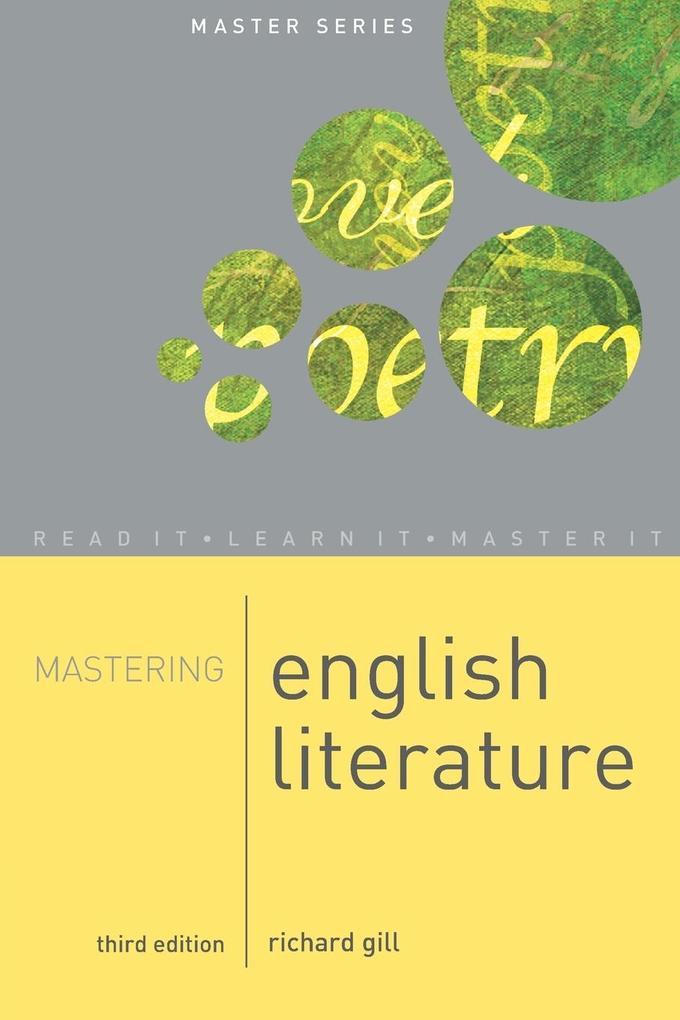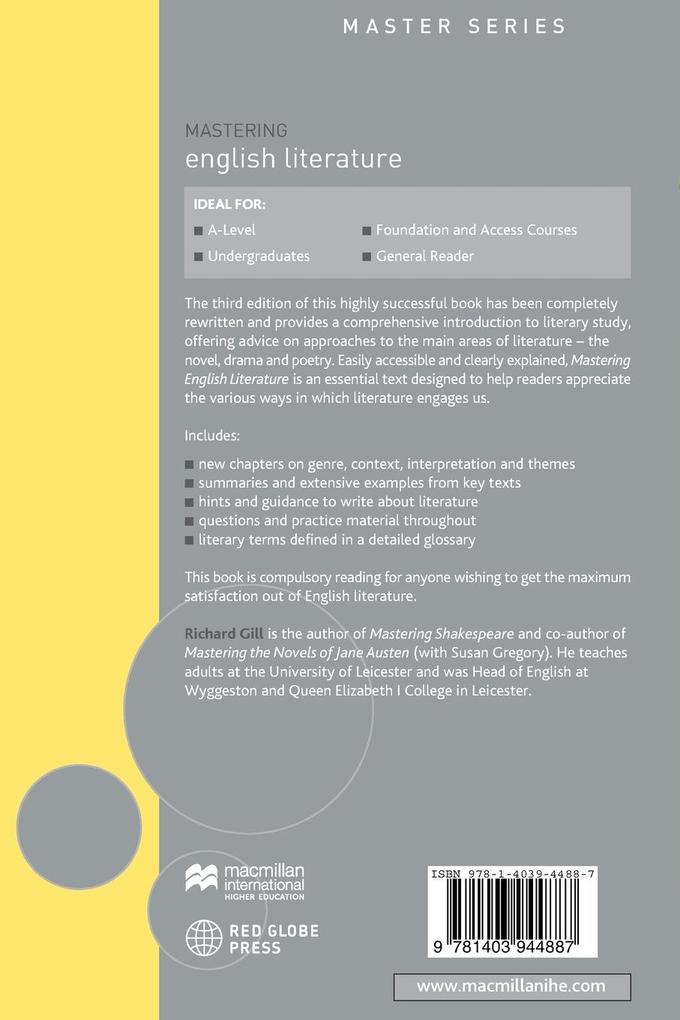
Zustellung: Di, 22.07. - Fr, 25.07.
Versand in 5 Tagen
VersandkostenfreiBestellen & in Filiale abholen:
The third edition of this leading text provides a comprehensive guide to literary study. Emphasis has been placed on contextualizing literature and this updated version takes these changes into account by incorporating more material on historical and cultural contexts as well as in-depth discussions on novels, drama and poetry.
Inhaltsverzeichnis
Introduction.- PART 1: THE NOVEL.- Stories.- Characters.- Narration.- Plot.- Settings.- The Scope of the Novel.- PART 2: DRAMA.- Familiar Drama.- The Language of the Stage.- Plots and Actions.- Characters.- Audience.- Watching and Studying.- PART 3: POETRY.- Valuing, Performing, Hearing.- What Poets Make.- What Poets Think.- What Poets Do: Words and Meanings.- Poetic Shapes and Sounds.- The Work of Poets.- PART 4: GENRE.- Classification.- Tragedy.- Comedy.- Epic.- Lyric.- Satire.- Romance.- Gothic.- Pastoral.- PART 5: CONTEXT.- The Past.- Religion and the Bible.- Classical Civilisation.- Books and Ideas.- The Arts.- Society.- PART 6: INTERPRETATION.- Discovering Meanings.- Internal Interpretation: Narratology, Grammar and Genre.- Internal Interpretation: Formalism.- Theorists and Literary Features.- Debating Interpretations.- External Interpretation: Social.- External Interpretation: Feminism.- External Interpretation: Psychological.- External Interpretation: Ideas.- Issues in Interpretation.- PART 7: THEMES.- The Scope of Literature.- The Living World.- The Four Seasons.- The Earth.- Aspects of Nature.- Ideas about Nature.- Buildings.- Mortality.- The Human Mind and Society.- Love.- War.- Glossary.- Bibliography.- Index.
Mehr aus dieser Reihe
Produktdetails
Erscheinungsdatum
28. Juli 2006
Sprache
englisch
Auflage
3. Auflage
Seitenanzahl
564
Reihe
Macmillan Master Series
Autor/Autorin
Richard Gill
Verlag/Hersteller
Produktart
kartoniert
Gewicht
846 g
Größe (L/B/H)
234/156/30 mm
ISBN
9781403944887
Entdecken Sie mehr
Bewertungen
0 Bewertungen
Es wurden noch keine Bewertungen abgegeben. Schreiben Sie die erste Bewertung zu "Mastering English Literature" und helfen Sie damit anderen bei der Kaufentscheidung.
























